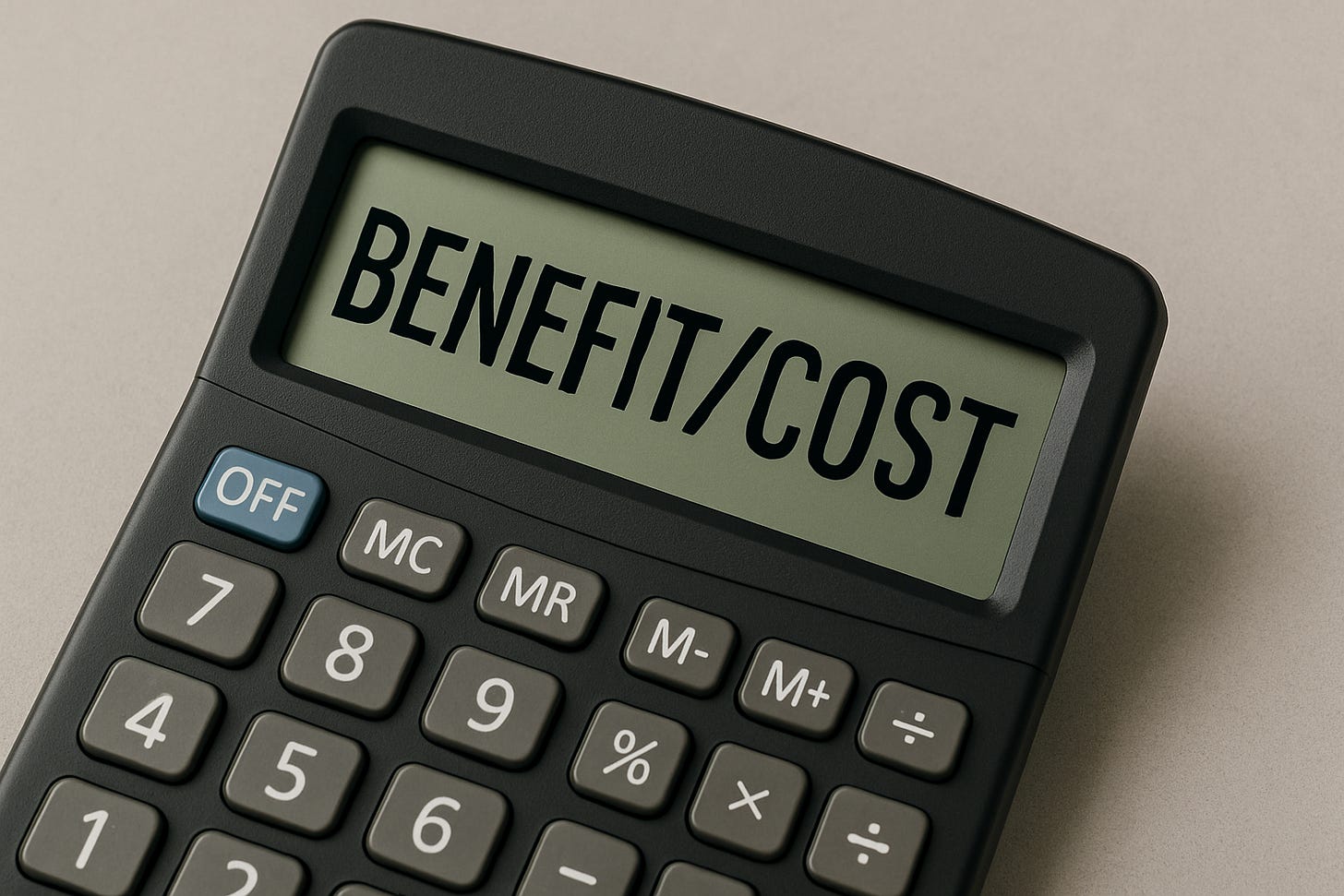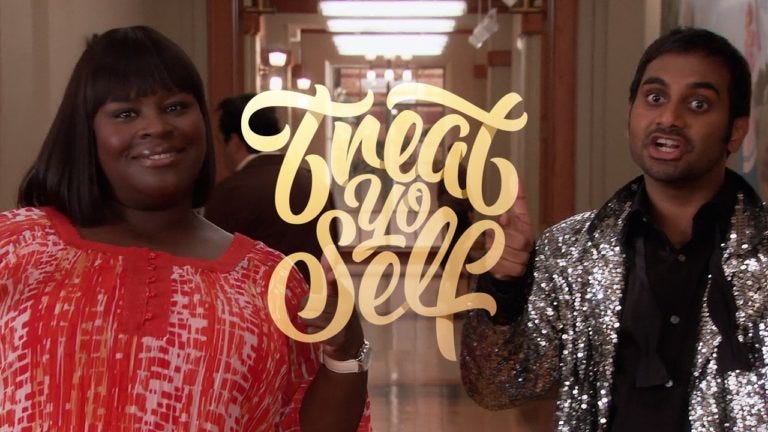Not Everything is About ROI
Those who choose to try to optimize life by calculating the costs and benefits of every decision, are ultimately only cheating themselves.
There's a term used in Taiwan that has always bothered me: CP值. It is short for “cost performance ratio.” It’s a way to evaluate whether something is “worth it” or how much value you’re getting for the price. It essentially promotes the idea of getting a good deal.
CP值 often used for referring to restaurants and gadgets. You might hear, "This sushi restaurant has a great CP值 because you can get high quality sushi for a really low price." Or someone might say, "Don't go to that dumpling place, the other one has better CP值"
At first glance, it sounds smart and practical. Who doesn’t want more value for less?
But the more I reflected on why it bothered me so much, the more I realized how this mentality, when applied beyond restaurants and gadgets, can quietly turn into a scarcity mindset and be damaging. It promotes small-mindedness and being "cheap" with your life choices and investment of time and resources. Not everything in life is about financial returns.
When we start approaching life like a cost-benefit analysis, we start asking the wrong questions:
“Is this relationship worth my time?”
“Is this risk worth the energy?”
“Is this experience giving me enough ROI?”
We begin living transactionally, constantly trying to optimize instead of living. Holding back on spending, investing, donating, risking, because we don't think there's enough upside or return on the other side. I've come across this in fundraising for films, asking for support for political candidates, or inviting people to join non-profit boards. When you approach life with this CP值 mentality, you choose everything solely based on outcomes and expected returns. You become selfish and stingy, instead of generous and giving. You live your life taking calculated risks and become paralyzed.
But the truth is, some of the most meaningful parts of life are deeply inefficient:
The hours spent helping a friend through a tough time
The risks we take on ourselves without any guaranteed return
The joy of doing something simply because it makes us feel alive
Not everything has to be “worth it” on paper.
Instead of always thinking about what your return will be, start asking:
“Does this align with my values?”
“Does this bring me growth, joy, or connection?”
“Am I thinking abundantly, or defensively?”
"Will I regret not taking this chance or having this experience?"
I've learned that when it comes to life, love, and purpose, the most worthwhile investments rarely come with the highest efficiency. Often the best things I've ever done in my life had terrible CP值, but they changed me and helped me grow the most as a person.
As the characters Tom Haverford and Donna Meagle said on the show Parks and Recreation: "Treat Yo Self!". You don't always have to be practical, you should also prioritize self-care, happiness and embracing joy with how you spend your time and money.




